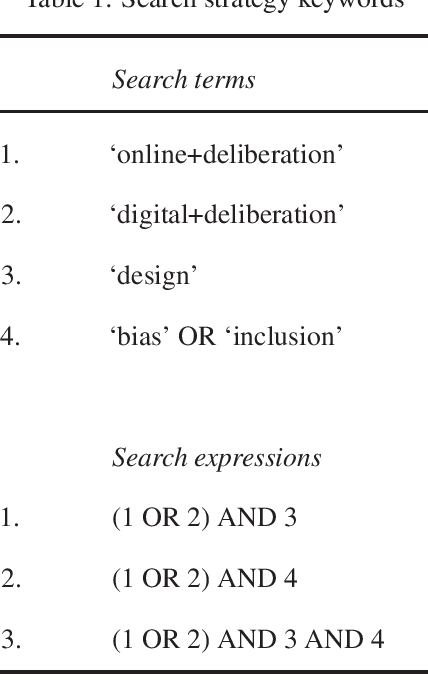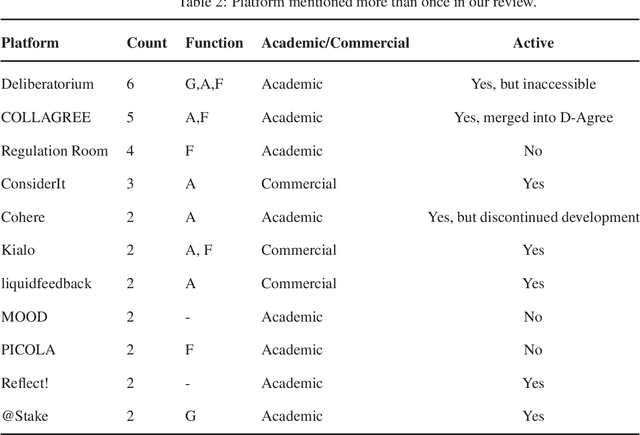Anatol Itten
Inclusion, equality and bias in designing online mass deliberative platforms
Jul 27, 2021

Abstract:Designers of online deliberative platforms aim to counter the degrading quality of online debates and eliminate online discrimination based on class, race or gender. Support technologies such as machine learning and natural language processing open avenues for widening the circle of people involved in deliberation, moving from small groups to ``crowd'' scale. Some design features of large-scale online discussion systems allow larger numbers of people to discuss shared problems, enhance critical thinking, and formulate solutions. However, scaling up deliberation is challenging. We review the transdisciplinary literature on the design of digital mass-deliberation platforms and examine the commonly featured design aspects (e.g., argumentation support, automated facilitation, and gamification). We find that the literature is heavily focused on developing technical fixes for scaling up deliberation, with a heavy western influence on design and test users skew young and highly educated. Contrastingly, there is a distinct lack of discussion on the nature of the design process, the inclusion of stakeholders and issues relating to inclusion, which may unwittingly perpetuate bias. Another tendency of deliberation platforms is to nudge participants to desired forms of argumentation, and simplifying definitions of good and bad arguments to fit algorithmic purposes. Few studies bridge disciplines between deliberative theory, design and engineering. As a result, scaling up deliberation will likely advance in separate systemic siloes. We make design and process recommendations to correct this course and suggest avenues for future research.
 Add to Chrome
Add to Chrome Add to Firefox
Add to Firefox Add to Edge
Add to Edge